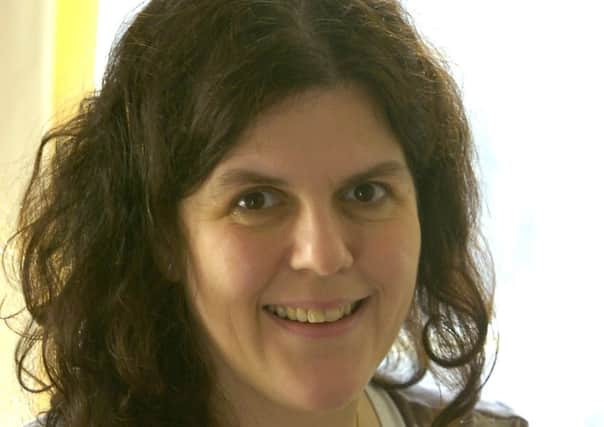Helen Fowler: MS and looking to the future


Shaking a bit, I wrap the wool around the needle in my right hand and try to create a new stitch. My hands are so shaky that I fumble it. And drop the knitting. The Multiple Sclerosis (MS) again.
At times like this I feel a bit like somebody trying to predict the end of the First World War, wondering whether it will all be over by Christmas. I’d like to have this doll knitted by then as a present for my younger daughter.
Advertisement
Hide AdAdvertisement
Hide AdBut every time I drop a stitch (it happens quite often these days) or wake up unable to feel my hands (ditto), I feel scared. It’s a sick, churning terror in my stomach, heart and throat that comes from just not knowing what my MS has got planned for me next.
Doctors are aware that people like me with MS don’t have much clue to what the future might hold. Just a blind terror featuring wheelchairs and humiliating assistance with even the most personal of functions.
Shortly after I was diagnosed I was shown a piece of laminated paper with factors suggesting my MS might be “mild”. I wasn’t allowed to take it away with me (“Your mood is already dangerously low”.)
But the guide was meant to be reassuring. On the plus side was my gender and initial symptoms. In my case, it was losing the sight in my right eye that got me to hospital. It may sound a bit weird to feel glad that I lost my sight. I’m not really glad about it. But the vision loss was – on that occasion at least – temporary.
And, in the upside-down world of MS, going blind (as long as it’s temporary) is considered better news that “sensory” problems, where arms and legs cannot link up to our brains.
I learnt too that being aged between twenty and forty at the first onset of symptoms was also – again, somewhat counter-intuitively – “good” news in this topsy-turvy world.
The kind doctor became worried at this point, when he remembered about me being forty six when I got my diagnosis. “But you were forty when you had the vision loss?” he said.
The FutureMS project is gathering data from people recently diagnosed with relapsing MS to try and produce more accurate predictions into how the illness will affect people. The research is aiming for “personalised” treatment that aims to help doctors prescribe the right medicine (not too strong, not too mild) at the right time.
Advertisement
Hide AdAdvertisement
Hide AdIt’s pioneering work. And it’s happening right here, in Edinburgh. At the Anne Rowling Centre.
MS feels not unlike going to war. Darkness, terror, loss, unspeakable injury. And no choice about whether or not you get involved in it.
But I’d like to know (I think) a little bit more about what the future with my MS is likely to hold. Or maybe ignorance is bliss. I don’t think I’d have liked to know when I was in my twenties that I would get MS once I got into my forties. All I cared about then was getting my by-line in the paper and whether that guy I fancied would be at the party on Friday night.
If I can get this doll knitted in time for Christmas, that’s about as far ahead as I’m comfortable looking right now. The FutureMS trial may change that “Live for the moment” attitude. It might even help me start to think more than a few months ahead. The findings could give me and thousands others a bit more certainty about what this illness is likely to do to us. Who knows, I might even be able to knit a dress for this doll in time for her next Christmas.
* Helen Fowler is an Edinburgh-based journalist and MS campaigner
